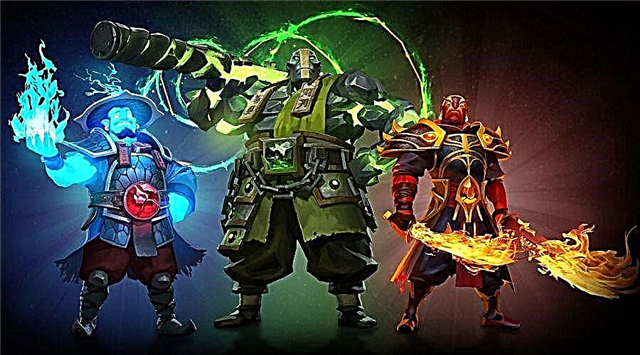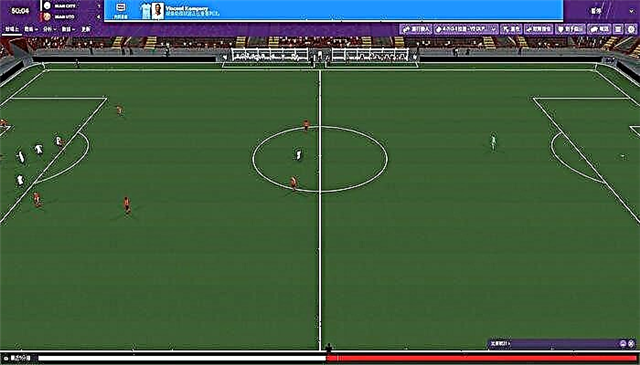You can take on as big or a small role in training as you wish. The assistant manager is fully prepared to conduct training in your absence, he will base his decisions on your tactics, the time of the season, as well as his own qualities and preferences. Once you're in control, you can customize your training from our extensive list of templates on the Training > Calendar page, or dive into each one and switch from one session to the next, creating customized schedules for your specific situation.

The assistant always prepares workouts for you in advance, so if you want him to mostly manage it, but dip in and tweak a few things here and there, you absolutely can. The easiest way to do this is straight from the weekly training news you'll receive every Sunday evening. You can even create your own schedules from scratch on the Learn > Schedules page and apply them to calendar months in advance. The more specific you want to be when training, the more specialized squad you can create. Training has both a short-term impact - the upcoming match, and long-term player development and attribute growth. The best advice is don't rush, study the system and try to get inside the real manager's head!
The basics
Training is held on a weekly basis.
Each schedule consists of sessions.
There are 3 sessions per day, session 1, session 2 and an additional session.
Each session is available for practice in a wide range of exercises, from general team field work to specific odds conversion work and even team work.
Subdivisions
The team is divided into training divisions.
This is goalkeeping, defense and attack.
By default, players are placed in the unit of measure that suits them best; attackers to attack, central defender to defense, etc.
You can move the player from one unit to another. It is also possible to promote a young person from the youth or reserve team to the senior division, where he will train on the senior schedule.
The division a player is in determines which role they take on in each training session.
Sessions
Classes are training exercises performed on general or specific playgrounds.
Sessions are performed either by the whole team or by individual sections.
Each session has its consequences. Here's how the sessions will affect players.
Impact
Each session has a different effect, including the attributes it affects, any tactical familiarity acquired, the risk of injury during said session, and so on.
Each session can have up to three focuses: primary, secondary, and tertiary.
Each focus will receive a different amount of attention, and as such the impacts will differ in both type and weight.
When training in units, each unit receives a different focus. Thus, some units may receive 60% of the coaches' attention, while others may only receive 20%.
While group sessions are conducted as a whole group, there may still be different focuses.

For example, "General > Attackers" sees all field players (i.e. attacking and defensive units) train together, changing places during the session to provide both attack and defense. So all players get 60% attention to attack attributes like Crossing, Dribbling, etc. and 20% attention to defensive attributes like Marking, Grabbing, etc. GC is working. A workout that is divided into positional units forces one unit to work against another to complete the exercise, with the particular unit being the main focus of the session. For example, "Attacking > Attacking Wings" considers the attacking block as the main focus of the session, receiving 60% of the attention, that is, 60% is focused on the listed attributes and impacts, such as waiting, ending, etc., as well as related impacts. such as a slightly increased risk of injury. Defensive and goaltending units work on defending against the attacking unit, and although they are not the main focus of the session, they still receive 20% focus each, which means 20% focus on their relative attributes and other impacts.
Intensity
As discussed above, each session has a different effect. Some of these impacts are related to risk and injury status.
Intensity - risk of injury + condition.
Each day in the schedule has an Intensity associated with it, a combination of Injury Risk + Condition for all three sessions that day.
This is measured relative to the average match age in %.
Only match days are expected to reach 100%. Only the most intense workouts will surpass this, with most training days comfortably below 100%.
The intensity can be measured for each individual unit or team as a whole.
Mentoring
Mentoring is how the more powerful players on the team pass on their experience to younger players.
Mentoring allows a manager to group players together for the purpose of sharing player traits (PPM) and conveying desired (or undesired) personality traits. Players must be on the same team to mentor each other and each group must have at least 3 players.
A good starting point is an experienced professional who is a social leader, teamed up with several young players who play in a similar position. It is also possible to set up a short period of one-to-one mentoring through the "Welcome to the Club" interaction when signing a new player. This will prompt the current player to mentor a new field entry for a short period of time and will make it easier for him to transition into his new group of teammates. This only affects the personality and settlement in the club, no player traits (PPM) are transferred.
Best practice
Preseason
It's a good idea to have a pre-season launch, whether it's from our list of pre-season templates or you create your own. If left to the assistant, he will work until the start of the season in accordance with his preferences. During the pre-season, players are likely to experience minimal levels of fatigue, with the exception of those returning from the summer international team. When fatigue is low, a player who works hard physically (fatigue-increasing sessions) will improve his long-term fitness, which means that he will be able to maintain fatigue for longer during the season. However, once the player is already starting to tire, sessions that are overly physical (increase fatigue) will tire the player even more, meaning they will eventually become exhausted. So if you have a proper pre-season, the players will stay in good shape and last longer into the season itself. Underworking players in the pre-season or overworking players during the season itself will result in fatigue. Of course, too much physical work at any time increases the risk of injury, but this can be an acceptable compromise if you want to work hard with the players. The pre-season is also a great time to work on those physical attributes that simply can't be worked on in large quantities during the season itself due to the schedule.
Matches
It is important to have a match preview session before each match, it contains a pre-match briefing.
It's also important to run a post-match recovery session and/or give players some rest. This is important for recovery and prevention of injury and fatigue, especially during busy periods.
Sessions
With the exception of pre-season or periods of deliberately busy players, say a week without a match, it is not recommended to do more than 2 sessions per day, leaving additional sessions as a rest.
Game page: Football manager 2019.











